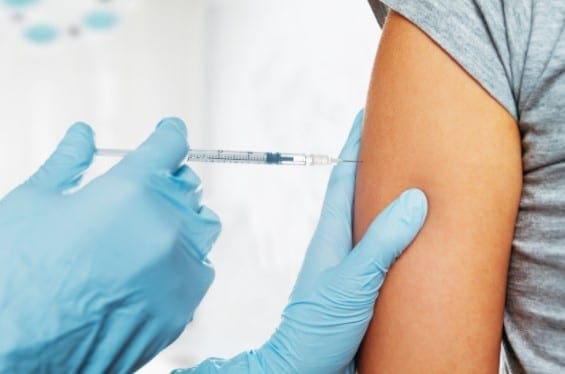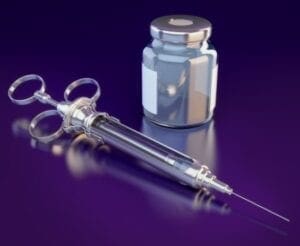Supply of the COVID-19 vaccine in the United States is expected to be pretty limited in the beginning. So The CDC (Center for Disease Control) has provided recommendations to federal, state, and local governments about who should get the vaccination first.
CDC’s recommendations are based on the Advisory Committee on Immunization Practices (ACIP), an independent panel of medical and public health experts.
All COVID-19 vaccines were tested in clinical trials involving tens of thousands of people. In order to make sure they meet all the safety standards. Adults of different races, ethnicities, and ages, including adults over the age of 65, participated in the clinical trials.
Luckily, there were no serious safety concerns. The most common side effects were pain at the injection site and symptoms like fever and chills.
In order for the COVID-19 vaccination to protect you – Two doses are needed.
Depending on the specific vaccine you get, a second shot 3-4 weeks after your first shot is needed. To get the most protection the vaccine has to offer against this serious disease. Learn more about the benefits of getting vaccinated.
Risks and benefits will be explained to everyone offered a COVID-19 vaccine
Explaining the risks and benefits of any treatment to a patient is the standard. Written consent is not required by federal law to receive the COVID-19 vaccination in the United States. However, providers of the vaccine should consult with their own legal counsel for requirements in each state, as it relates to consent.
 Who Gets The Vaccine First?
Who Gets The Vaccine First?
CDC recommends that initial supplies of the COVID-19 vaccine be allocated to:
Phase 1a
- Healthcare personnel – All paid and unpaid workers serving in healthcare settings who have the potential for direct or indirect exposure to patients of infectious materials.
- Long-term care facility residents – Adults who reside in facilities that provide medical and personal care services to anyone who is unable to live independently.
- Medical First Responders: High risk of exposure to COVID-19 through their response to medical emergencies such as Emergency Medical Technicians, Police, and Fire.
After a review of all the available information, ACIP and CDC agreed the lifesaving benefits of COVID-19 vaccination for LTCF residents outweigh the risks of possible side effects. Consent for the vaccination in LTCF’s should be obtained from residents (or the person appointed to make medical decisions on their behalf) and documented in the resident’s chart.
Phase 1b
- Frontline essential workers – Such as corrections officers, public transit workers, food and agricultural workers, grocery store workers, United States Postal Service workers, manufacturing workers, and those who work in the educational sector (teachers, support staff, and daycare workers.)
- People aged 75 years and older – Due to the high risk of hospitalization, illness, and death from COVID-19. *People aged 75 years and older who are also residents of long-term care facilities would have already gotten the vaccination in Phase 1a.
If you are age 75 or older and are interested in getting vaccinated against Covid, make sure to register with VAMS (the Vaccine Administration Management System, which is a system the federal government is using to administer the vaccine). Go to the link below (you’ll be prompted to enter some basic info):
https://dphsubmissions.ct.gov/OnlineVaccine
Once you’ve registered with VAMS, you’ll receive a confirmation email from DPH. Followed by another email (within 2wks) from VAMS that either approves/denies the registration. If approved, you’ll then be able to schedule a vaccination appointment thru VAMS. Remember to check email Spam/Junk folders for the emails.
- Individuals and staff in congregate settings
Phase 1c
- People aged 65 – 74 years – Due to the high risk of hospitalization, illness, and death from COVID-19. *People aged 65 – 74 years who are also residents of long-term care facilities would have been offered the vaccination in Phase 1a.
- People aged 16 – 64 years with underlying medical conditions – which increases the risk of serious, life-threatening complications from COVID-19.
- People who have a weakened immune system
- People who have autoimmune conditions
- People who have previously had Guillain-Barre syndrome
- People who have previously had Bell’s palsy
- Other essential workers – workers in transportation and logistics, information technology, food service, law, housing construction and finance, communications, energy, media, public safety, and public health.
Experts don’t have enough information about the COVID-19 vaccines In real-life conditions. People who get vaccinated should continue to follow all current guidance to protect themselves against COVID-19 after they receive the vaccination.
The goal is to get everyone easily vaccinated against COVID-19 as soon as possible. But large enough quantities of the vaccine are needed. Once the vaccine is widely available, the plan is to have several thousand vaccination providers offering COVID-19 vaccines. In doctors’ offices, retail pharmacies, hospitals, and federally qualified health centers.
What to Expect After Getting a COVID-19 Vaccine
Disclaimer: The information provided in this article does not, and is not intended to, constitute legal advice and is for general informational purposes only.
Let Us Know How We Can Help!
Please fill in your contact information and a brief message about what you need help with. A consultation will need to be scheduled in order to provide legal guidance.
Marketing & Technology Director at RWC, LLC, Attorneys & Counselors at Law
Ukraine born and Israel / Miami, FL raised. University of Miami graduate in the Marketing field.
Mom to a girl, a boy, and a Siberian Husky.








